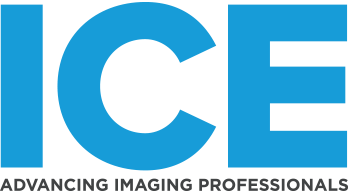 A professional college gave me call and said, “Mark, as an expert in revenue cycle management I do not want to add your origination to my slide deck as an example of how not to schedule.”
A professional college gave me call and said, “Mark, as an expert in revenue cycle management I do not want to add your origination to my slide deck as an example of how not to schedule.”
She said her family used my organization for their health care. The scheduler had added an exam that was not ordered and compounded the issue by booking the exams back-to-back on two different MRI units located 20 minutes from each other.
Imagine if she had not called me. It could be valuable to have an assistant to aid your schedulers and keep you in compliance.
GPT (general purpose technology) or Artificial Intelligence (AI) has revolutionized the health care industry, especially in the realm of medical revenue cycle management. As an operations expert in this field, it is crucial to understand how GPT can significantly improve scheduling, time slot utilization, preauthorization, correct CPT coding and timely care for patients.
Scheduling is a critical aspect of health care operations, as it directly impacts patient flow, efficiency and revenue generation. We hire staff, train staff, create knowledge bases for non-medical personnel to understand preps for imaging exams and yet on average 10 percent of exams are not scheduled correctly. With the help of GPT, medical facilities can create optimized schedules that consider various factors such as physician availability, patient preferences and appointment urgency. GPT algorithms can intelligently analyze historical data and predict future demand, allowing for better resource allocation and improved patient access to care.
Time slot utilization is another area where GPT can make a significant impact. By analyzing appointment patterns and patient flow, GPT can identify underutilized time slots and suggest strategies to maximize scheduling efficiency. This can lead to reduced wait times for patients, increased provider productivity and, ultimately, improved patient, physician and revenue generation for the facility.
Preauthorization is a crucial step in the revenue cycle process, as it ensures that the services provided are covered by the patient’s insurance plan. GPT remembers the subtle requirement for each payer. It can streamline the preauthorization process by automatically verifying insurance eligibility, identifying required documentation and submitting authorization requests in a timely manner. This not only reduces the administrative burden but also minimizes denials and delays in payment, ultimately improving revenue cycle efficiency.
Correct CPT coding is essential for accurate billing and reimbursement. GPT can assist health care providers in selecting the appropriate CPT codes based on clinical documentation, reducing the risk of coding errors and ensuring compliance with billing regulations. By automating this process, before the order is placed by the requester, GPT can help optimize revenue capture and minimize revenue leakage due to coding inaccuracies.
Timely care is essential for patient satisfaction and outcomes. GPT can facilitate proactive patient outreach, appointment reminders and follow-up communications to ensure that patients receive timely care and adhere to treatment plans. By leveraging GPT to enhance patient engagement and communication, health care providers can improve patient outcomes, increase patient loyalty and drive revenue growth.
Imaging directors are responsible for the success of their departments, GPT has the potential to revolutionize medical revenue cycle management operations by improving scheduling, time slot utilization, preauthorization, correct CPT coding and timely care. As an imaging operations expert in this field, it is crucial to embrace and leverage this technology to enhance efficiency, optimize revenue generation and, ultimately, deliver high-quality care to patients.
Mark Watts is an experienced imaging professional who founded an AI company called Zenlike.ai.









